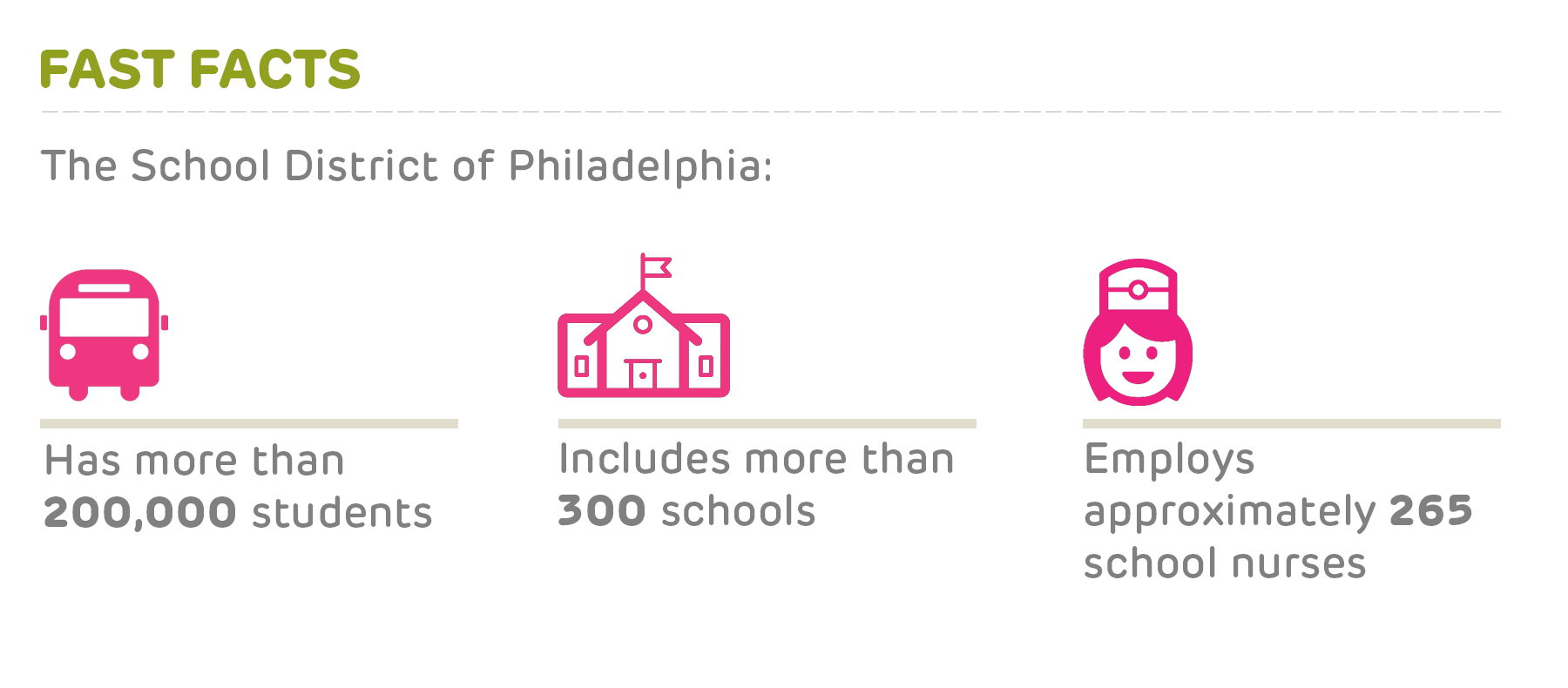Improving School Health Services for Children in Philadelphia: An Evaluation Report for the School District of Philadelphia
On behalf of the School District of Philadelphia, PolicyLab conducted an assessment and review of school health services offered by the district in 2019. Using this evaluation, we aimed to identify strengths and opportunities for enhanced coordination and efficiency of health service delivery within the district. Our review focused on the Office of Student Health Services and, most directly, on the role of the school nurse.
This report is an example of PolicyLab’s expertise in providing community leaders, stakeholders, and decision-makers with the critical guidance, tools, and technical assistance they need to build capacity for high-quality care and programs. Working collaboratively with Philadelphia School District leadership on this evaluation, we turned evidence-based and best practice examples into actionable approaches for the district to use to improve its student health services.
What follows is an overview of our process, findings and recommendations. Read the full report by clicking "Download Material" above or click here to access a PDF of this overview.
Our Approach
From January 2019 to July 2019, we conducted an intensive review of local and external district school health systems, structures and operations. We reviewed documents, analyzed policies and procedures, interviewed key stakeholders, and conducted a literature review, which included an analysis of position statements from professional organizations as well as academic publications.

We chose to leverage the National Association of School Nurses’ (NASN) Framework for 21st Century School Nursing Practice to guide the organization of our report findings. The Framework features five core principles: standards of practice, quality improvement, care coordination, leadership and community/public health. We also used best practice standards to identify priorities and develop recommendations.
Findings and Recommendations
Finding 1: School nurses and nurse leadership need greater access to data to efficiently and effectively perform job responsibilities and to facilitate quality improvement initiatives.
Suggested Solutions:
- Optimize the current electronic health record to achieve standardized data collection, data sharing, and timely, accessible data aggregation and dash boarding
- Use school health data to support appropriate staffing models and performance appraisals
Finding 2: Nurse staffing and support levels can be optimized to respond to the range of school nurse responsibilities and the volume and health complexity of the student populations.
Suggested Solutions:
- Use acuity analysis to build staffing models that accurately predict nursing needs
- Hire full-time nurse substitutes via the district instead of external agencies
- Delegate non-medical tasks to qualified nursing assistants
Finding 3: Health-related departments and programming should prioritize a collaborative approach to the delivery of health services.
Suggested Solutions:
- Assess and align health service-related departments and programming
- Create a resource guide that spans physical and behavioral health services
- Emphasize nurse participation on interdisciplinary care teams
Finding 4: Health service policies and procedures should reflect current roles and practice and be an active resource in the delivery of services.
Suggested Solutions:
- Create a readily available policy manual
- Involve nurse leadership and all appropriate stakeholders in the creation of health policies
- Allocate resources to professional development
- Make cross-training available for school nurses and behavioral health professionals
Finding 5: Infrastructure supports, including staffing and data accessibility, are needed for school nurses to achieve targeted population-based care, a core tenant of school nurse practice.
Suggested Solutions:
- Promote nurse-initiated immunization strategies
- Standardize nurse involvement in health education and family engagement
- Implement “mass screening days” to assist nurses in focusing on student needs as well as broader community and public health initiatives
- Use data to expand the focus beyond individual students to populations with similar health concerns
Looking Ahead
The health of students is critically important for their educational engagement and attainment and can help put them on a path to a successful future. The School District of Philadelphia has a strong foundation for school health services and a talented workforce of school health nurses and administrators. The opportunities outlined in this report to improve the delivery of health services will provide enhanced alignment with best practice and will advance the use of data, technology and the capacity for quality improvement in order to help children be their healthiest selves.
Click here to access a PDF of this overview.